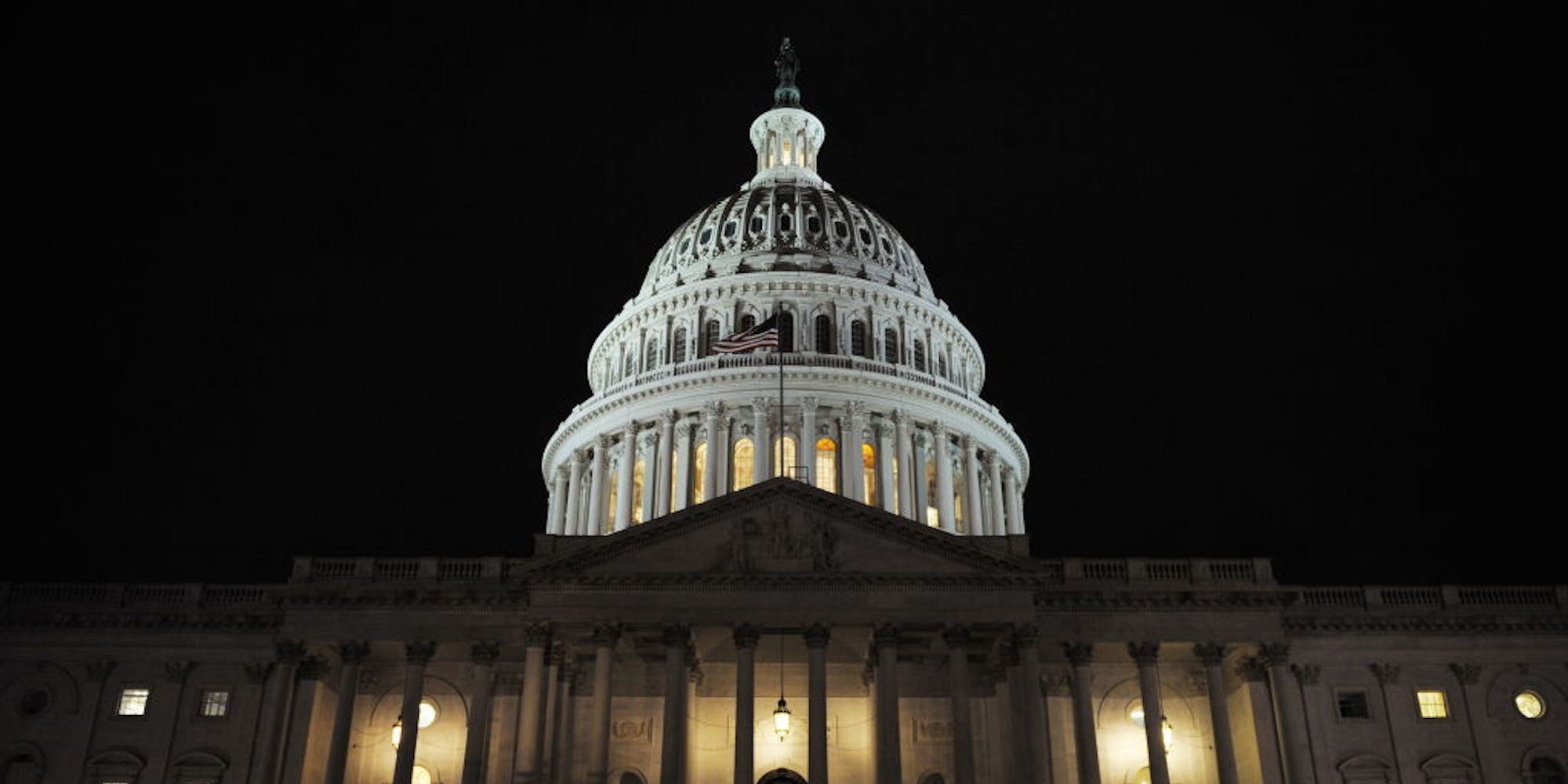
MANDEL NGAN/AFP via Getty Images
- Monday is the start of a new, brief session for Congress in which they could pass a new coronavirus stimulus bill.
- Both President Trump and President-elect Biden have said they want Congress to cut a deal.
- But for months, Democrats and Republicans have fought over the details of funding packages — varying from $500 billion to more than $2 trillion.
- Democrats are championing a comprehensive package containing unemployment relief, while the GOP favors a smaller bill tightly focused on helping businesses.
- Another open question is whether to issue a further round of $1,200 checks directly to Americans.
- Congress has little time to settle its differences, as well as a looming government shutdown to avert.
- Visit Business Insider’s homepage for more stories.
Congress is reconvening on Monday, presenting a new chance to pass a stimulus bill to inject more cash into the US economy. But time is short.
Lawmakers are returning to Washington, DC, for a short session that is due to end before Christmas. They also have to use the time to avert a looming government shutdown, which would kick in on December 11 without new legislation.
Republicans and Democrats have been deadlocked for months over a new coronavirus relief bill, despite pressure from President Donald Trump and President-elect Joe Biden to cut a deal.
The CARES Act in March authorized spending of $2 trillion, but expired in July.
The parties have been at loggerheads since, unable to bridge deep divides on how much stimulus money to authorize, and where to send it.
Democrats want a large, $2.2 trillion relief plan that contains a revival of the $600 a week in unemployment benefits agreed to in the first relief bill, as well as a second round of $1,200 payments for ordinary Americans.
It also covers aid to small businesses, and state and local government agencies struggling under the increased cost of the coronavirus.
Republicans have argued for a smaller relief package, arguing that the economy is better than expected. They want a figure around the same size as the $500 billion package proposed in September, with relief for small businesses and an increase in public health funds.
Senate Republicans did not include mew $1,200 checks in their most recent proposed relief bill in October, per CNBC. In earlier rounds of negotiations, the parties had agreed on further checks, but that consensus may no longer exist.
President Donald Trump repeatedly expressed support for a relief bill ahead of the November 3 election, though has mentioned the issue less often since his focus turned to baselessly disputing his loss to Joe Biden.
However he did renew calls for a bill to be passed in a November 14 tweet.
"Congress must now do a Covid Relief Bill. Needs Democrats support," Trump wrote on Twitter. "Make it big and focused. Get it done!"
Biden has called on Congress to act as matter of urgency, and pass the Democratic version of the relief bill.
"Right now, Congress should come together and pass a COVID relief package like the Heroes Act that the House passed six months ago," he tweeted on November 16.
According to the Associated Press, key sticking points "appear to be Pelosi's demand for state and local government aid and McConnell's demand for a liability shield for businesses reopening during the pandemic."
But it's not just disputes on COVID-19 relief at stake in the lame-duck session. If the two parties can't hammer out a government funding agreement an emergency funding bill will expire on December 11, leading to a government shutdown.
The pressure on lawmakers to find a route out of the impasse is high, with businesses pleading for help to see them through the winter, and coronavirus cases soaring.
State authorities are also requesting help to ensure an ambitious federal government vaccination program can be rolled out in the spring.

